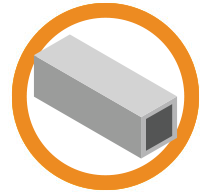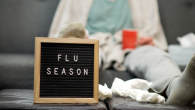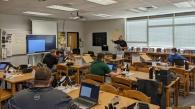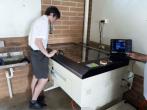
Face masks are a simple and cost effective way to help decrease Covid-19 and other airborne virus transmission, with the ultimate goal of saving lives.
Wearing a face mask in public has been shown to reduce the spread of coronavirus, including from those who are pre-symptomatic, according to government health departments.
However, some face masks are more effective than others. Below, we rate the effectiveness of various forms of face masks.
Surgical masks:
Surgical/medical masks are highly recommended.
They are loose-fitting and disposable, and protect the nose and mouth from coming into contact with germ-laden droplets that fly through the air, when an infected person coughs or sneezes.
Face masks can also make sure droplets from the wearer are not being spread. These masks are single-use only.
But not all surgical masks are created equally. To ensure that you are wearing a mask that is fit for purpose, you can use the ASTM F2100-11 standard, which rates surgical masks for efficacy.
ASTM sets three levels of barrier protection:
- Level 1: low barrier protection: general use that does not involve aerosols, spray or fluids.
- Level 2: moderate barrier protection: for low to moderate levels of aerosols, spray and/or fluids.
- Level 3: maximum barrier protection: for heavy levels of aerosols, spray and/or fluids.
To determine if a mask is Level 1, 2 or 3, ASTM evaluates several characteristics, including bacterial filtration efficiency, sub-micron particulate filtration, differential pressure and flame spread.
The minimum resistance pressure in a Level 3 mask is double that of a Level 1 mask.
Shop Level 1, Level 2 and Junior 3-ply Medical Face Masks from Tools for Schools here.
N95 masks:
N95 masks can provide a higher degree of protection than a surgical mask or cloth mask because they filter out both large and small particles.
They are named N95 masks because they are designed to block 95% of particles or liquids that may come in contact with your face.
However, since they rely on a tight fit, they are incompatible on people with facial hair and children. Like surgical masks, they are intended to be single-use only.
Shop KN95 Masks from Tools for Schools here.
Fabric/cloth masks:
Fabric or cloth mask can reduce the spread of viruses, are easy to purchase or make, and are washable. These masks should never be shared, and if they become wet or dirty, it is important to switch to a clean one.
Face masks with valves:
These masks have a valve that release the wearer’s exhalations.
They do a good job protecting the wearer, but because of the one-way valve, they do not offer much protection to the people around the wearer. If the wearer is contagious they could still be spreading the virus to others.
Since one of the major reasons to wear a mask is to protect others, a surgical mask would be a better choice.
No matter which mask is chosen, it is important for the wearer to avoid touching their masks, and if they do, to sanitize or wash their hands after.
This information is intended as a guide only, please check out your state government’s information for the latest tips and regulations.
Tools for Schools offers a wide variety of face masks for you and your students' safety and protection here.
From BST Health







